What is Topical Relevance in SEO? (And How to Achieve It)
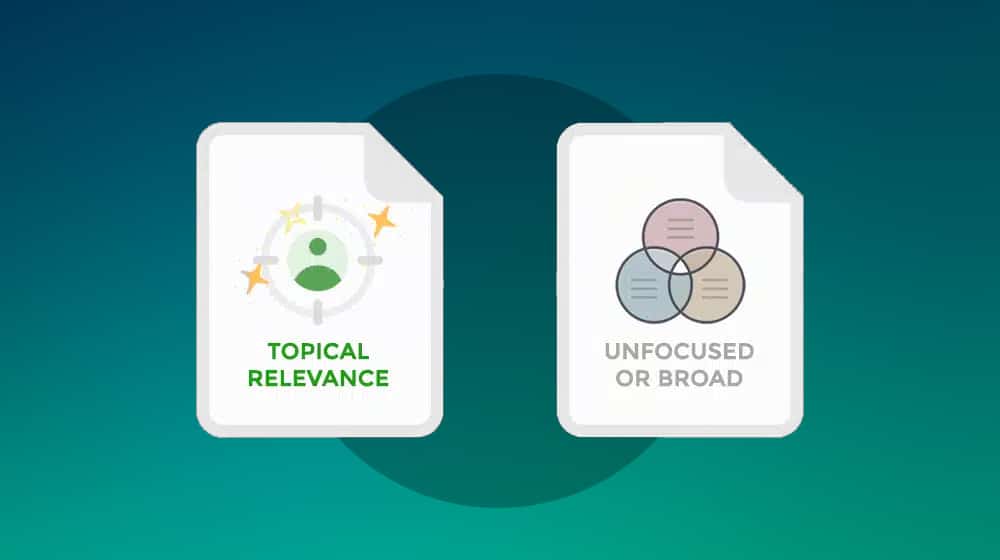
One of the core pillars of SEO is relevance. You want every piece of content you create to be relevant. What is relevance, though, and how does it apply site-wide?
It's a topic that some people end up unclear on, mainly because some of the biggest sites don't seem to have a narrow topic that they focus on.
Let's analyze the situation and see what takeaways we can come up with, shall we?
Topical Relevance at the Content Level
First, let's look at the form of relevance you're most likely familiar with already: relevance at the content level.
In your daily life, you've probably experienced the frustration of searching for a niche topic that doesn't have a lot of coverage but, more importantly, has an alternative definition that gets a lot more coverage. You'll find many sites in the search results that use that alternate definition and very few that use the one you're after. It isn't very reassuring, and it means you have to use search operators like quotes and specific, niche keywords to get Google to display what you want instead of what they think you want.
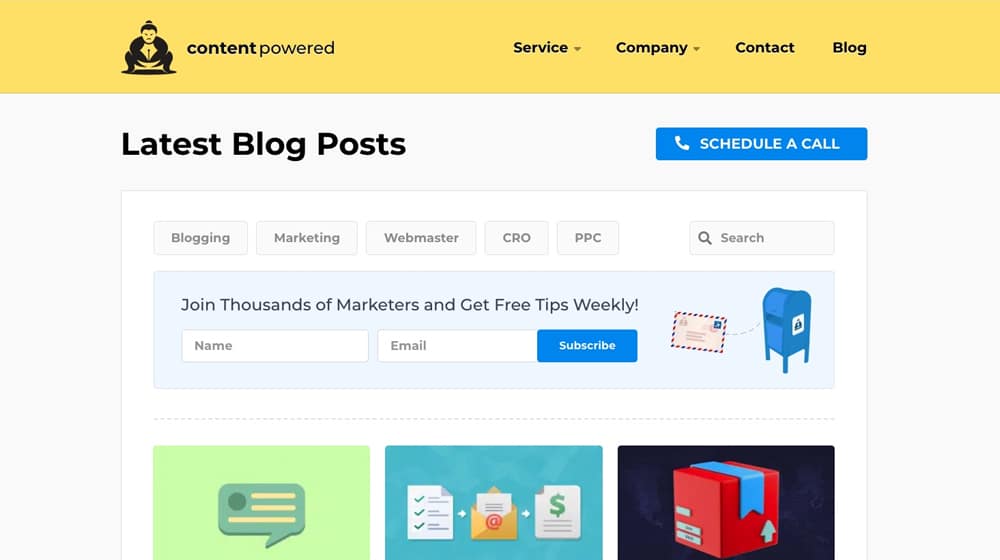
When you're producing content, relevance means identifying those specific relevant keywords and targeting them exclusively. If someone is searching Google for Macro Photography Lenses, you don't want to write a general blog post about lenses overall; you want to write one about macro lenses.
Relevance is critical for a marketing strategy because it narrows and focuses your audience. It's just like what we talk about in paid advertising: the narrower and more focused your audience is, the better your click-through and conversion rates will be. Reaching 100 people with a 20% conversion rate is better than attracting 500 people with a 1% conversion rate. Right?
Topical Relevance at the Site Level
Site-level relevance is a ranking factor relatively few people consider when building up their businesses and blogs. But, it can be surprisingly substantial.
For example, consider these two sites:
Both sites offer magnets for sale if you're searching for magnets to use in a scientific or industrial setting. One is solely focused on magnets, though; the other has magnets alongside various scientific and industrial supplies and materials.
You can guess which is which from the names alone.
That's a very complex question.
Magnet Shop has a lot going for it. They're a long-time supplier of magnets for a wide range of purposes, and they have many resources for choosing the right magnets for various purposes. On the other hand, if you're searching for various products to order and magnets are just one of them, you'd be better off going with Grainger.
There are a lot of other details as well, like brand reputation, site design, security, and so on - these things also impact which one you want to use, but that's all somewhat beside the point.
The point is that there's a site with a very focused niche and a less focused one. The focused niche and content rank the site for the focused search more highly.
When searchers look for magnets to buy - assuming that both sites are comparable in size, age, content quality, usability, and so on - chances are good that Magnet Shop will rank more highly.
How Backlinks Give Search Engines Context
Google's algorithm learns a lot about the content on a website. They look at the page on your website, the section of the website that you put that page in, and how that page compares to the rest of your pages on average (to name a few).
In addition to all those content signals, they also look at backlink signals to determine relevance. From those links, they extract more helpful hints and information - the type of websites linking to you, the industries they are in, the anchor text they used, the context of those links within each paragraph, the context of those links within their websites as a whole, and more.
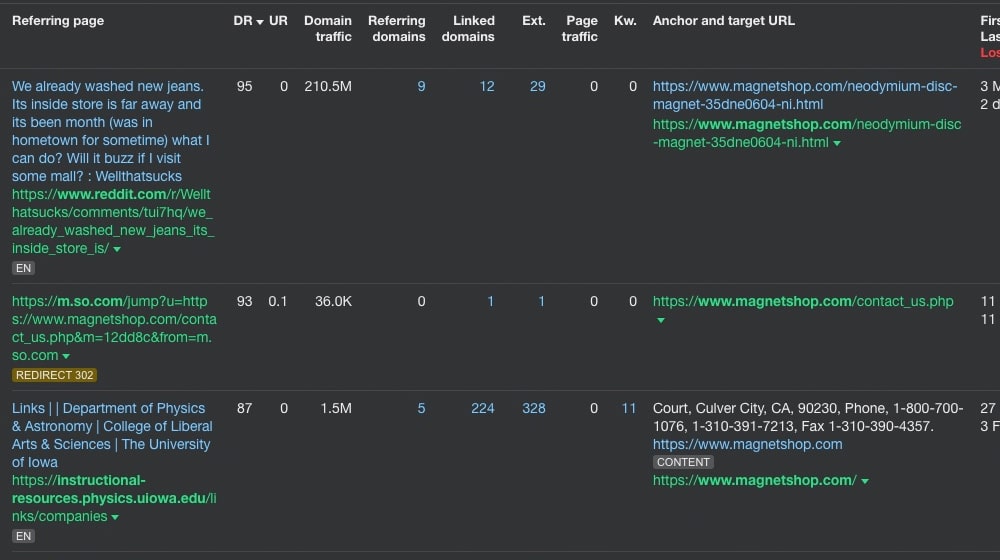
Let's use MagnetShop.com as an example again and look at some of their links.
- One of their links is from The University of Iowa's Department of Physics and Astronomy, linking to them as one of their chosen magnets manufacturers.
- One is from a Reddit thread about removing an anti-theft tag that a store accidentally left on a pair of jeans. The comments all discuss using a strong magnet to remove it, and somebody linked to a MagnetShop page as an example.
- Another is from an electric bicycle website, discussing neodymium magnets and their use in electric bike motors.
These are all high-quality, relevant links that tell Google what the site is about. Every one of these links mentions MagnetShop and magnets in the same conversation.
Google notices this, too, and realizes, "Hey, this website is most likely a place to buy magnets."
If these types of links primarily dominate their link profile, they have built topical authority in their link profile. Content about magnets will likely perform well, as Google has picked up many signals that this site has good information about magnets.
If your business is in a narrow niche, this is something to keep in mind before investing in any link-building efforts. Relevant links are an important component of building topical authority.
Megasites Muddy the Waters
Under most situations, you might assume that a focused site is better. After all, if someone is performing a Google search for a product to buy or a specific topic to read about, they might want to read from an authority that focuses all of their efforts on that niche, right?
Unfortunately, SEO tends to snowball. That's why virtually any time you want to buy a product, you have Amazon, eBay, and other storefronts topping the results. It's why any time you look up a piece of content, you will see top results from sites like Forbes or one of the New York Times spinoff sites (Wirecutter and so on) as a top result. Even if a more niche and focused site might be a better resource, the sheer weight of SEO behind a site like Forbes is enough to overpower many smaller websites, even if the results on those smaller sites are technically more relevant.
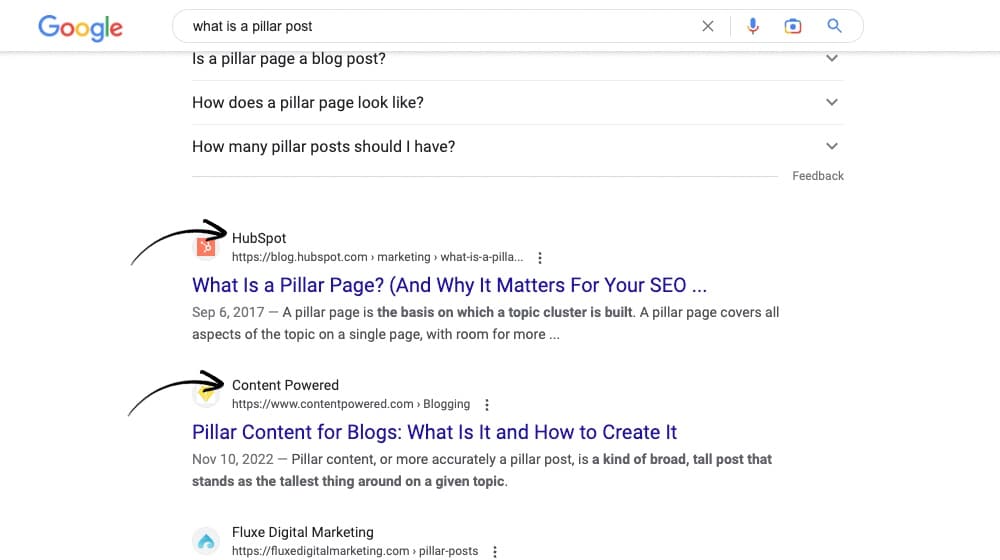
This phenomenon makes it appealing to start an omni-topic mega site, which is why many people get into blogging with the idea that they'll cover everything in a given niche. After struggling for a while, they eventually fail and either start over or give up.
The same thing plays out within general industries. If you're looking to break into something like the marketing niche, you could start narrow with something like growth hacking and social media marketing, or you could throw everything about marketing you can at the wall and see what sticks. With the former, you have a focused niche you can build authority around before expanding; with the latter, you compete directly with massive sites like SearchEngineJournal or HubSpot, which is very challenging without a lot of luck, effort, and money.
All of this is made even trickier by sites like YouTube, where you can have specific, narrow-topic channels, all backed by search engine optimization and the unique treatment videos get in Google's search.
Finding the Sweet Spot
Here's another scenario I like to use to illustrate my point.
Imagine you've decided to keep some fish and are looking into setting up a freshwater aquarium.
You have all sorts of questions:
- What fish thrive in such an aquarium?
- How big should the tank be? What chemicals and additives should you add?
- Should you get real plants, or are fake plants acceptable? What temperature should you keep it? What should your lighting be? How often do you need to change the water?
There's a lot to learn. So, you turn to Google to search for those things.
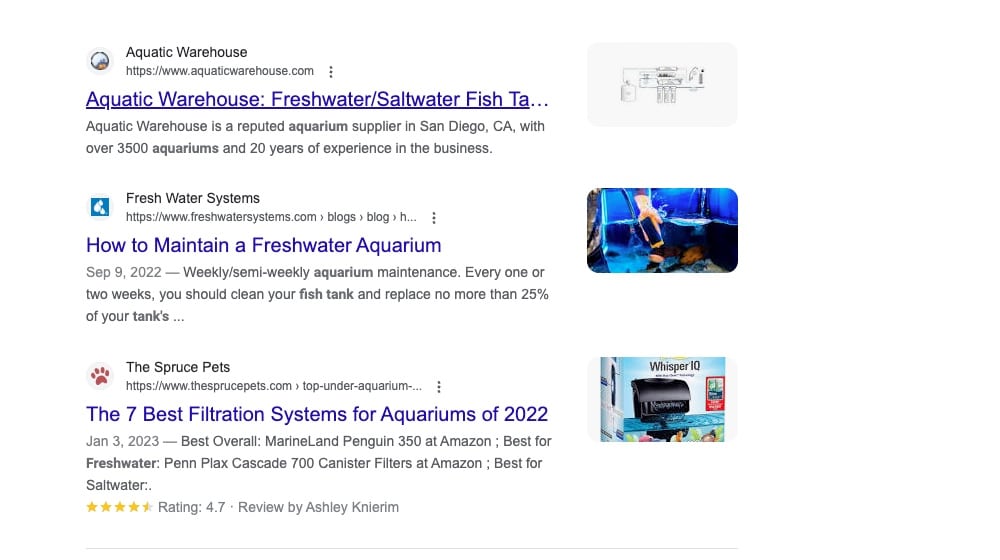
You find sites like:
1. Fresh Water Systems: A large company managing fresh water, from food and drink systems to aquariums, household piping and fixtures, and industrial freshwater setups.
2. Vet Street: A large pet-focused site that mostly writes about dogs and cats but occasionally writes some content about other kinds of pets, including fish.
3. PetCo: The prominent national pet supplies chain with over 1,500 locations that sells fish and other pet supplies.
4. Aquarium Care Basics: A smaller website entirely focused on freshwater aquarium systems and the animals you can keep within them.
Which sites do you want to use as a resource? Sites like PetCo are likely to have incentives to recommend particular products and systems (that they sell). In contrast, sites like Vet Street might not have as nuanced or experienced opinions since they mainly focus on terrestrial pets. Fresh Water Systems has some helpful information, but much of what they write about is entirely outside your needs.
From a business perspective, a site like Aquarium Care Basics is a great place to be; they already know that virtually everyone reaching their site is interested in freshwater aquariums. That lets them be very focused on their information, sales pitches, and authority building.
There's a downside to this kind of focus, though. Using a keyword research tool like this search volume estimator will give you an idea pretty quickly:
- "Freshwater aquarium" has an average monthly search volume of about 2,400.
- "Fish tanks" has an average monthly search volume of about 33,100.
As a site owner, which is better for you: the smaller, more focused audience or the larger, less focused audience? Is your traffic still valuable to you if you're attracting search queries from the wrong type of people?
No Right Answers
Suppose you try to create a pet blog called "Waggy Tails," which is a very focused blog about one animal: dogs.

You're limited to a smaller potential audience, but you'll have the edge over many of the larger companies that have millions of random SKUs on their site.
Your site has real first-hand experience and expertise, which builds trust; that's the kind of in-depth, high-quality content that people are looking for and the relevant content that Google rewards.
On the other hand, let's say that Waggy Tails covers every kind of animal with a tail, from cats and dogs to lizards and birds.
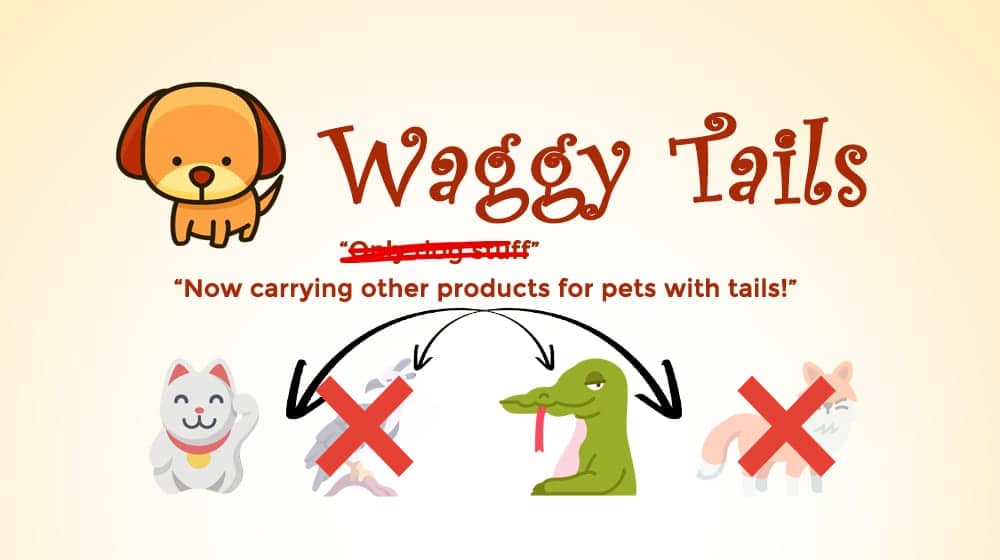
In that case, you will have a vast audience with a very, very surface-level coverage on your site because you don't have the time, budget, or energy to go deep into every kind of pet you could think about.
It's also challenging to maintain expertise, authority, and passion for all of those different types of pets. Your content marketing may be bland, inaccurate, or clear that you lack expertise (especially when compared with other high-performing pages written by people who are experts on those topic clusters).
It's primarily a personal preference matter, but it also depends on how effectively you can cover your chosen topics.
Some business owners don't like sticking to something so narrow. Others don't want to bite off more than they can chew.
Shoulder Niches and the Expansion of a Brand
If you start broad, narrowing your site's focus can be challenging. It's difficult to abandon a niche within your overall content strategy and SEO strategy because any audience you had because of that niche will be disappointed that you've left them.
On the other hand, if you start small with your subject matter, you can expand to new subtopics over time.
If you start with freshwater aquarium content, you're in a comfortable, narrow niche where you can build a name for yourself. Over time, maybe you feel like you've started to reach the limits of what you can cover in freshwater aquariums, so you decide to expand into the unique benefits (and unique challenges) of keeping a saltwater aquarium or a tropical aquarium. Or you grow into hybrid aquariums with terrarium portions so you can keep amphibians and fish.
Eventually, you expand into a site that covers all things aquatic pet related. Each of these additional niches is called a shoulder niche, something I've discussed before.
Consider some other examples.
- You start a site about Nintendo video games and eventually expand into mobile games, other platforms, and finally, PC games - until you're just a general gaming site.
- You start a site about baking sweet desserts, and over time expand into other kinds of baking (like bread) and other kinds of food, and eventually, just become a general interest food blog.
- You start a site about growing vegetables in a home garden and expand over time into growing wildflowers, fruit trees, larger-scale gardening and farming, and more.
It's all about growth, patterned in niches. You pick a narrow place to start, build up your reputation and authority in that niche, and then use that authority to expand into related keywords and grow there until you saturate them as well.
Where Should You Start?
The question every blogger has to ask themselves is: where to begin?
Start narrow. You don't have to be hyper-narrow (you could start with all things aquariums, not just freshwater aquariums), but leave yourself room to grow. Build a strong foundation, grow an audience, and then branch out.
Try out different kinds of content and see if they work. Experiment!
Some of the niches you try to expand into won't work, and it could be any number of reasons, from poor timing to poor choice of initial topics. The key is to avoid putting too much effort, budget, and time into a niche that isn't going to get you any traction.
I generally recommend more focus because Google likes to see more focused sites. The mega-sites make it harder to see, but the more focused a site is, the more likely it is to show up for focused queries. I chose that magnet example above because the search engine results pages put Magnet shop in position #1, even over Amazon and eBay. Being tightly focused can be a significant advantage.
Sep 2023 Helpful Content Update
Google launched its Helpful Content Update this month. In a nutshell, the update focuses on ranking content based on its helpfulness to users.
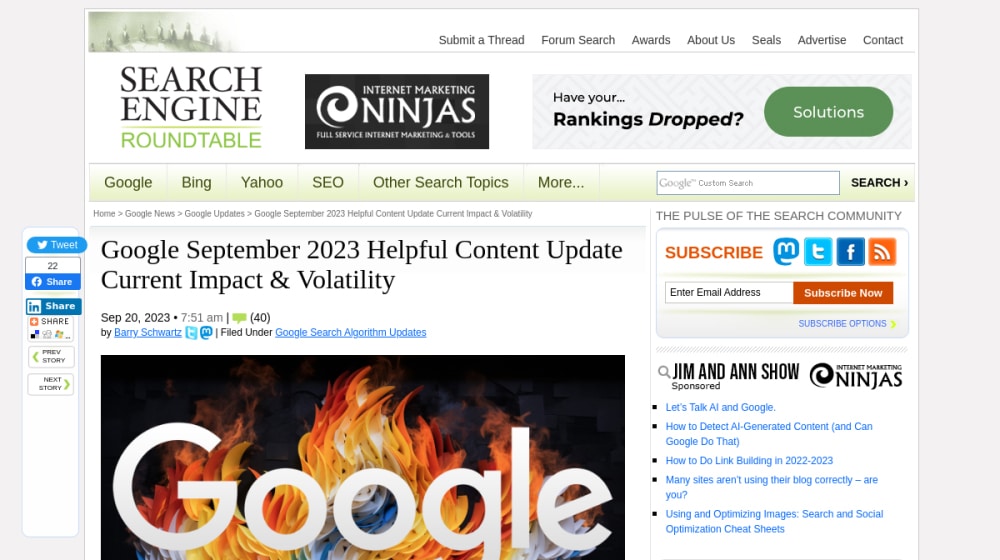
It doesn't directly mention "topical relevance" as a primary factor. Still, several implications can be gleaned from this update in relation to topical relevance:
- Satisfying User Experience: The "helpful content system" rewards content where visitors feel they've had a satisfying experience. While this doesn't explicitly mention topical relevance, a critical component of a satisfying experience is delivering content that's directly related to the user's query—i.e., being topically relevant.
- Suppressing Low-Value Content: The system identifies the content of "little value, low-added value or otherwise not particularly helpful to people." If a piece of content strays away from the core topic or fails to provide substantial information about the topic, it could be considered low-value or not helpful.
- Site-wide Implications: If a site has a significant amount of content deemed "unhelpful," all content on that site could potentially perform poorly in search rankings. This emphasizes the importance of maintaining consistent quality and relevance across a site.
- Weighting of the Signal: Sites with a high proportion of unhelpful content will experience a stronger effect from this signal. This underscores the importance of keeping content topically relevant and of high value to users.
- Classifier Refinements: Google will periodically refine how it detects unhelpful content. This means that the definition of "unhelpful" can evolve, and website owners need to stay updated on what Google deems valuable and relevant.
- Content from Third-Parties: If third-party content doesn't align with the main site's purpose (and possibly its core topics), it's recommended that this content be blocked from indexing. This indicates that maintaining a clear, topic-centered approach to content is beneficial.
While the announcement doesn't explicitly mention " topical relevance, " the principles and mechanics described can directly affect it. It underscores the importance of creating content that matches users' expectations (and thus their queries) and offers genuine value. Ensuring that content remains topically relevant and provides in-depth, valuable insights will undoubtedly contribute to it being seen as "helpful" by Google's algorithms. Basically, the same thing I (and Google!) have been recommending to people for years!
Do you have any questions for me about topic relevance? What are your favorite tips for achieving topic relevance? Please share with us in the comments section below!





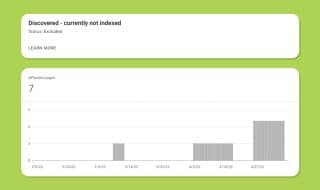




Comments